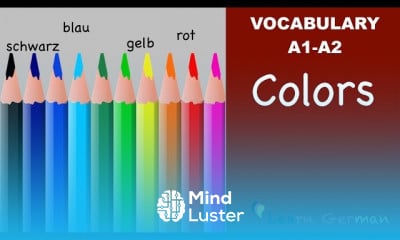Learn German | German Grammar | Modalverben | Modal verbs | A1
Share your inquiries now with community members
Click Here
Sign up Now
Lessons List | 6
Lesson
Comments
Related Courses in Languages
Course Description
German verbs (deutsches Verb)
German verbs may be classified as either weak, with a dental consonant inflection, or strong, showing a vowel gradation. Both of these are regular systems. Most verbs of both types are regular, though various subgroups and anomalies do arise; however, textbooks for learners often class all strong verbs as irregular.Verb conjugation is the process of changing a verb to indicate the person, gender, tense, number, or aspect of a sentence.
In English, we can use verb conjugation to specify who is performing an action. For example:
I am
You are
He/she/it is
These verbs are all forms of the verb ‘to be’.
German also conjugates verbs in this way. For example, you’ve probably already seen:
ich bin
du bist
er/sie/es ist
These are conjugated forms of the German verb sein (to be).
Both English and German have regular as well as irregular verbs.
Regular verbs are conjugated according to regular patterns
Irregular verbs usually change their vowels or ‘stem’ when conjugated
Although they follow unique rules, many irregular German verbs follow patterns similar to English.
(Note: The stem of a verb is the core part of the verb that normally stays the same even when conjugated. You’ll see this in the examples below. For example, the stem of the German verb “lernen” is “lern-“. In all conjugations of this verb, this stem stays the same while the ending changes.)
Trends
Graphic design tools for beginners
Android App Development with Kotlin
Logo Design
Accounting Finance course
Figma for UX UI design
Advanced Logo design methods
Customizing type for logos
Accounting
CMOS Logic Circuit Basics
Graphic Design Basics
Graphic Design | Photoshop
Web Design Using HTML CSS
UX design career in 2025
Best zoology books
Financial Accounting
Web Design 101 Free Full Course
Illustrator for logo design beginners
Figma design basics for beginners
Illustrator poster design for beginners
Anatomy Physiology
Recent
Bioinformatics basics
Bioinformatics databases
Vitamin A to Z tablets
Best zoology books
Best cream for piles pain
Laser surgery for piles
Best cream for piles
Anal fissure treatment
Best antibiotics for diseases
Antibodies structure
Macrophage structure
Drosophila genetics
Diagnostic tests
Bioinformatics
Genetics
Gene therapy
Kidney structure
DNA replication and types
Bacterial cell structure
Parasite structure


















